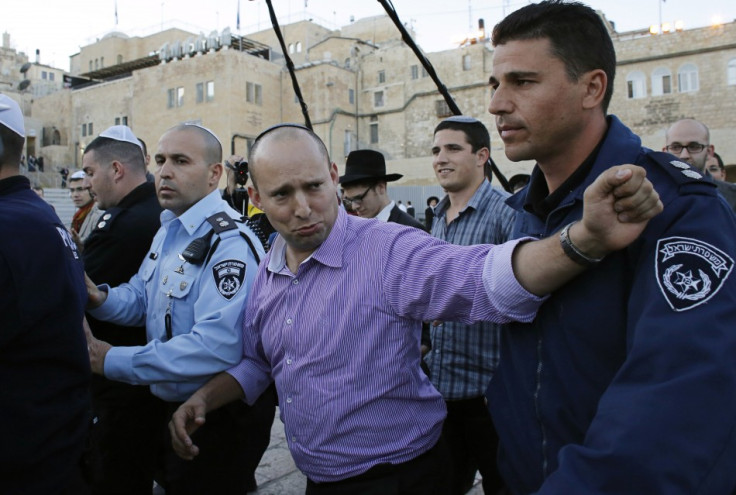Israeli minister Naftali Bennett accused of Lebanon massacre amid Gaza crimes probe debate

Israel's hawkish economy minister, Naftali Bennett, has been embroiled in a controversy over his alleged role in a past military operation that led to the massacre of more than 100 Lebanese civilians.
An article published by Israeli newspaper Yedioth Ahronoth accused the right-wing leader of leading a 67-men unit he commanded during Israel's 1996 campaign against Hezbollah in Lebanon into an ambush, by changing plans without telling his superiors.
To rescue Bennett's troops, Israel launched an artillery strike in the area that also hit a United Nations base at Qana, eventually killing 102 displaced civilians.
The incident triggered an intense international diplomatic effort to pressure Israel into ending its 16-day military effort known as Operation Grapes of Wrath.
The article said that Bennett indirectly caused the bloodshed, also damaging Israel's reputation, as he ignored orders and changed plans without coordinating with his superiors, who he accused of cowardice and lack of resolution.
After the piece was published, Raviv Drucker, a well-respected Israeli journalist with Channel 10, waded into the controversy, tweeting that a senior military officer with close knowledge of the matter told him that "on the radio, the young officer Bennett sounded hysterical, and his stress that he was under contributed significantly to the terrible accident."
Drucker's claim was later dismissed as "nonsense" by another military official.
Bennett, the head of the right-wing Jewish Home party, reacted angrily to the article and Drucker's tweet.
"To all those pencil pushers, sitting in your comfortable homes, writing 'advice' to those soldiers spitting blood on the front lines – you should be ashamed of yourselves," he wrote on Facebook.
"I remember well where I was that night in 1996. I was with my soldiers, deep inside Lebanon, facing the enemy," he added in another post. "Where were you that night, Drucker?"
Bennett claimed that he was being targeted because of his political stand that Israeli soldiers should not be investigated for possible crimes committed during recent operations in Gaza.
"I have said that there should be no investigation against bravery," Bennett wrote. "A commander's debriefing – of course! A criminal investigation – absolutely not! I voiced my opinion, and right away they whipped out the archives."
The issue is causing a fierce debate in Israel, with public opinion divided between those who feel the allegations should be thoroughly probed and others who maintain that legal threat would shackle soldiers in future battles.
It comes as the Palestinians have applied to join the International Criminal Court in The Hague, a move that could lead to war crime trials being initiated against Israeli officials.
© Copyright IBTimes 2024. All rights reserved.






